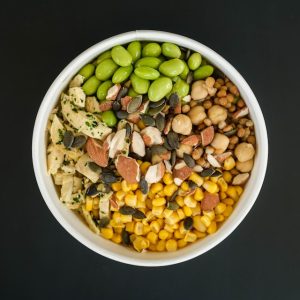Introduction
In a world where the term “sustainability” is gaining ever-increasing importance, there’s much we can learn from indigenous cultures. These communities have, for centuries, practiced plant-based diets that are not only deeply connected to the land but also offer a wealth of health benefits. In this exploration, we’ll dive into the fascinating world of plant-based diets in indigenous cultures and how they form a harmonious bond with the Earth. We’ll uncover the wisdom these cultures hold and how their practices can enrich the lives and well-being of individuals today.
The Wisdom of Indigenous Diets
Indigenous communities worldwide have long recognized the importance of sustainable living and the symbiotic relationship between humans and the Earth. Their plant-based diets are not merely a dietary choice; they are a way of life deeply rooted in respect for nature.
- Variety and Nutrient-Rich Foods: Indigenous diets often feature a wide array of plant foods, from grains and legumes to fruits and vegetables. This diversity ensures a broad spectrum of nutrients, essential for optimal health.
Photo by Kei Scampa: https://www.pexels.com/photo/power-bowl-with-healthy-food-of-corn-and-beans-5514818/ - Sustainability: Sustainability is at the core of indigenous diets. These cultures live in harmony with nature, using traditional farming methods that preserve the land for future generations. By avoiding overexploitation, they ensure the Earth continues to provide for their nutritional needs.
- Connection to the Land: Indigenous diets are intrinsically linked to the region’s flora. The foods they consume are native to their lands, fostering a profound connection to the environment and its seasons.
- Traditional Knowledge: Passed down through generations, indigenous communities possess invaluable knowledge about the cultivation, preparation, and use of plant-based foods for health and healing.
Health Benefits of Indigenous Diets
The plant-based diets of indigenous cultures offer numerous health benefits that are increasingly recognized in modern nutrition:
- Nutrient Density: These diets are packed with essential vitamins, minerals, and antioxidants, contributing to overall well-being and a reduced risk of chronic diseases.
- Low in Processed Foods: Indigenous diets typically avoid processed and refined foods, reducing the intake of unhealthy additives, sugars, and trans fats.
- High Fiber Content: A plant-rich diet is naturally high in dietary fiber, promoting digestive health and helping to maintain a healthy weight.
Photo by Kei Scampa: https://www.pexels.com/photo/mix-of-healthy-fresh-vegetables-and-shrimps-in-bowl-5514819/ - Reduced Environmental Impact: By consuming locally grown, seasonal foods, indigenous communities minimize their carbon footprint and environmental impact.
- Cultural and Social Benefits: These diets foster a sense of community and cultural identity, strengthening social bonds and mental well-being.
Incorporating Indigenous Wisdom into Modern Life
While adopting a full indigenous diet may not be practical for everyone, there are valuable lessons we can integrate into our lives:
- Diverse and Seasonal Foods: Embrace variety in your diet, incorporating locally grown and seasonal produce. Experiment with foods native to your region to connect more closely with the land.
- Sustainable Practices: Reduce food waste, choose sustainable sources, and support ethical farming practices to lessen your environmental impact.
- Respect for Traditional Knowledge: Learn from indigenous communities’ wisdom regarding plant-based foods and their preparation. This knowledge can enhance your culinary skills and your understanding of nutrition.
- Mindful Eating: Cultivate mindfulness in your eating habits. Appreciate the flavors, textures, and origins of your food, fostering a deeper connection to what you consume.
Conclusion
Indigenous cultures have shown us that a plant-based diet isn’t just about what we eat; it’s a way of life deeply intertwined with the Earth. Their sustainable practices, diverse and nutrient-rich foods, and traditional knowledge offer profound lessons for our modern world. By embracing these lessons and incorporating them into our daily lives, we can nourish not only our bodies but also our connection to the land, leading to enhanced well-being and a brighter future for our planet.












